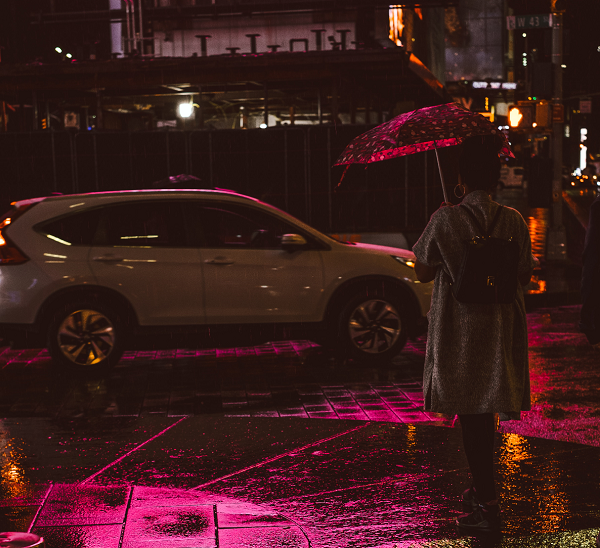As women, girls, and gender diverse people, the public spaces of the city are not designed for us. They do not reflect our needs. We must adapt to them. This is the case all around the world. As we move through urban spaces, we are often filled with fear rather than confidence. Concerns for our safety compel us to take the long way around rather than the direct route. We quicken our pace, we are thinking about how to weaponise our possessions. They tell us they designed these spaces for everyone. But this experience is not my idea of leisure or pleasure. We carry this fear in our bodies every day whether we are aware of it or not.
Dismantling inequalities in our urban environments to make them women-friendly is a multi-disciplinary task. We must think about the places we move through both on foot and in transport, and the places where we pause. We must listen to the needs of everyone so that we can design urban spaces to be inclusive, accessible, and safe.
In this panel discussion we explore how wayfinding design and environmental graphics can improve safety for everyone in public spaces. Redesigning inclusive pictograms to consider the needs of cis, trans, and non-binary people is a start. But there is much more that we can do. We will discuss what that might be. We hear different perspectives and lived experiences from panellists Zainab Marvi (Germany and Pakistan), Luciana Mattiello (/STUDIOMDA, Brazil and Belgium), Camilla Thrush (Gender Identity Research & Education Society, UK) and Susannah Walker (Make Space for Girls, UK). We explore what safety feels like for women and girls, and what research reveals. We also consider the ways in which wayfinding design can make public spaces feel safer, more welcoming, and more accessible
About our speakers
Zainab Marvi is a Pakistani designer, researcher, illustrator, and educator, based in Germany. Her research spans the fields of design, gender, cities, and cinema from a feminist perspective. She has a MSc. in Design Research from Bauhaus-Dessau and a Bachelor in Graphic Design from University of Karachi. Having lived and worked in Karachi, a common thread in her work revolves around women in public spaces, particularly how marginalised communities perceive and navigate the city. Currently, she is a visiting lecturer at COOP Design Research MSc. programme at Bauhaus-Dessau.
Luciana Mattiello is Creative Director of /STUDIOMDA. After undertaking a Bachelor’s degree in Architecture and Urban Planning followed by a Master’s in Graphic Design and Strategic Design, Luciana founded /STUDIOMDA, a Belgian-Brazilian studio specialising in strategies for wayfinding design in 1993. She is responsible for firm management and the development, implementation and installation of wayfinding and environmental graphic design systems in Brazil, Belgium and India. Clients include the European Parliament, Oud Heverlee Leuven Stadium, NMBS and Museum Hof Van Busleyden. The company has won awards in South America and Europe.
Camilla Thrush is Vice-Chair of London Legacy Development Corporation (LLDC) Built Access Environment Panel, and Training, Operations and Finance Manager for the Gender Identity Research & Education Society (GIRES). Camilla has worked to improve access and inclusion in the built environment for more than 15 years, including contributing to the Inclusive Design Standards for the LLDC. Recent work for GIRES has included working with Viking Signs is to produce signs which reflect what is in a changing room or toilet and not who uses the space, thereby reducing confrontation and also informing people what they can expect before they enter a space.
Susannah Walker is co-founder and Trustee of Make Space for Girls. She trained as a design historian, then became a TV producer and author. Her charity career began when she realised that her local council only provided outdoor facilities for teenage boys, but they didn’t propose to do anything about it!
